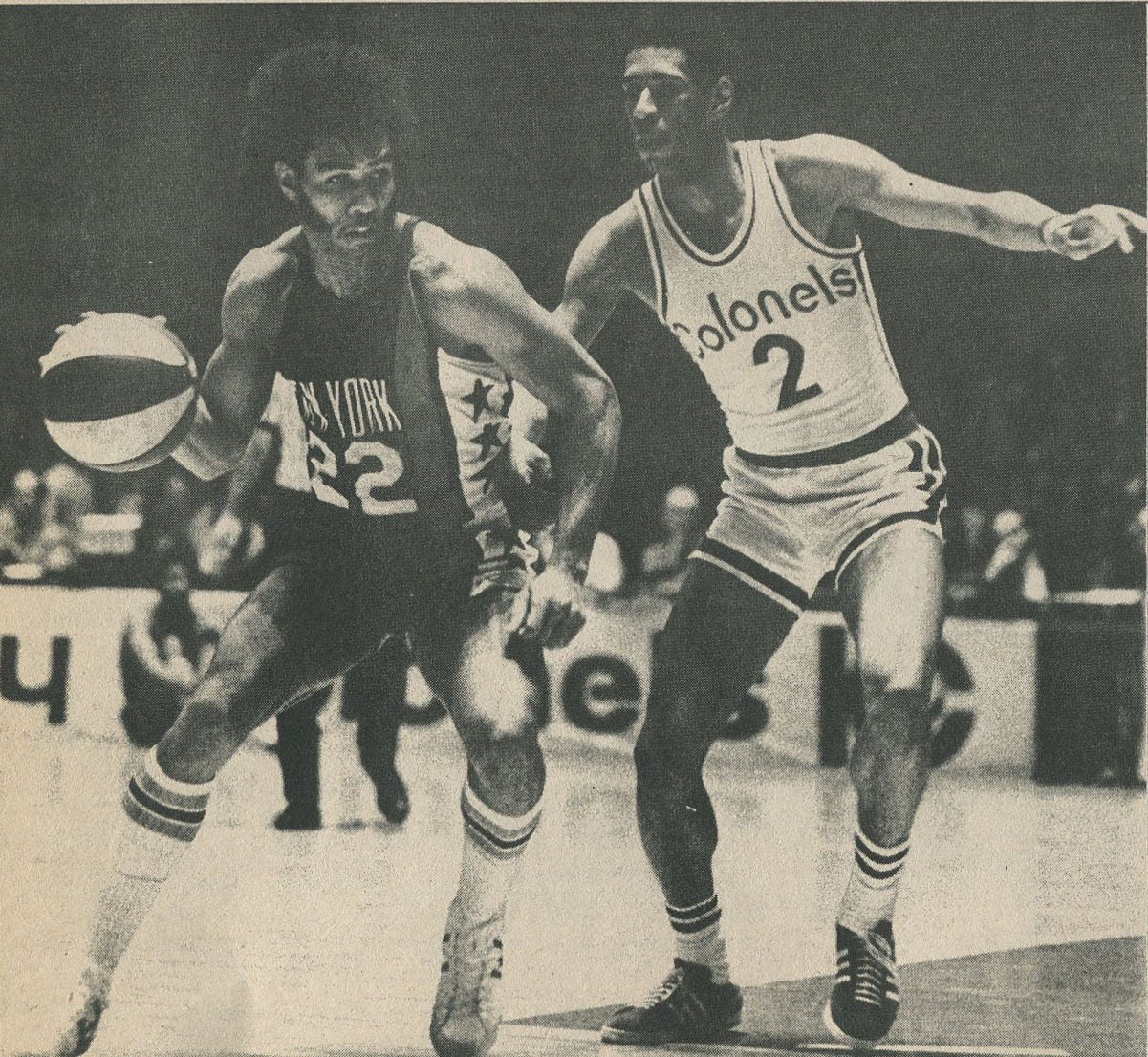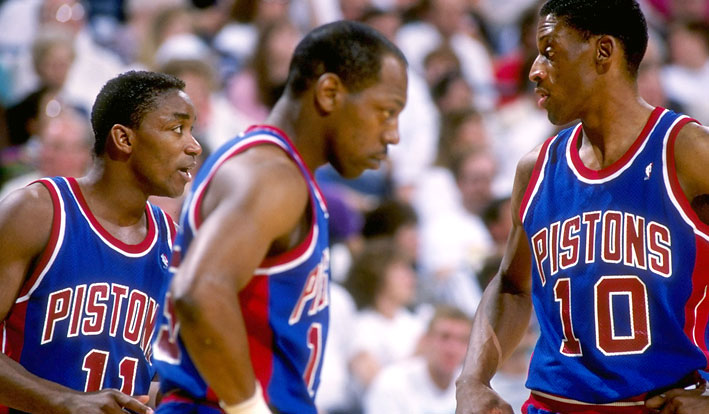We took eight groups of nine teams and have taken the top four out of each group. The next four from each group are all playing in the Consolation Bracket over the next couple of weeks. But before we get to a championship bracket reveal, I wanted to break down the field a little bit, kind of like we did last year.
I'm going to start with a look at a stat involving our newly invited guests for this year's tournament and see how the ABA champions handled themselves.
- NBA Teams: 30
- ABA Teams: 2
Here's more of a fun look, and one I did last year of a decade by decade look at our advancing teams.
- 50's Teams: 0
- 60's Teams: 1
- 70's Teams: 6
- 80's Teams: 7
- 90's Teams: 5
- 00's Teams: 7
- 10's Teams: 6
This next look involves records that made the Elimination Stage.
- 16-0 Record: 0
- 15-1 Record: 0
- 14-2 Record: 3 (3 #1 seeds)
- 13-3 Record: 3 (2 #1 seeds, 1 #2 seed)
- 12-4 Record: 6 (3 #1 seeds, 2 #2 seeds, 1 #3 seed)
- 11-5 Record: 8 (4 #2 seeds, 3 #3 seeds, 1 #4 seed)
- 10-6 Record: 5 (1 #2 seed. 2 #3 seeds, 2 #4 seeds; 1 10-6 team eliminated)
- 9-7 Record: 4 (1 #3 seed, 3 #4 seeds; 1 9-7 team eliminated)
- 8-8 Record: 2 (1 #3 seed, 1 #4 seed; 7 8-8 teams eliminated)
- 7-9 Record: 1 (1 #4 seed; 7 7-9 teams eliminated)
Now, you'll notice that these seeds are only listed 1-4. I'm building the Elimination Stage bracket almost exactly the same way I did last year. Our 32 team bracket is being broken up into eight four-team pods, with each pod getting a first place, second place, third place, and fourth place team. Last year, I largely built the bracket randomly except for ordering the group winners to set up the bracket such that the top seeds would play in a normal seeded bracket order. This year, I'm changing that and ordering every team. All of the group winners will be ordered 1-8, then the #2 seeds, and so on to ultimately build a field seeded 1-32, but the only seeds that matter will be 1-4. This will determine home court advantage exclusively for the first two rounds, then be the primary factor for determining home court in the quarterfinals onward. In the event of a tie (e.g. two group winners playing each other), point differential will break the tie. That should settle them all, but in the event it doesn't, my third tiebreaker will be average seed of the three other teams from the group. I doubt I'll need it, but I'd rather have the tiebreaker.
So you've seen a bit of a preview of how the bracket is going to unfold, but here is our tournament field, followed by the bracket.
#1 Seeds: 2013 Miami Heat, 1990 Detroit Pistons, 2012 Miami Heat, 1997 Chicago Bulls, 1992 Chicago Bulls, 1984 Boston Celtics, 2016 Cleveland Cavaliers, 1991 Chicago Bulls
#2 Seeds: 2015 Golden State Warriors, 1987 Los Angeles Lakers, 2011 Dallas Mavericks, 1996 Chicago Bulls, 2008 Boston Celtics, 1971 Milwaukee Bucks, 1983 Philadelphia 76ers, 2001 Los Angeles Lakers
#3 Seeds: 1977 Portland Trail Blazers, 1972 Los Angeles Lakers, 2007 San Antonio Spurs, 2005 San Antonio Spurs, 1980 Los Angeles Lakers, 1976 New York Nets, 1989 Detroit Pistons, 1970 New York Knicks
#4 Seeds: 2014 San Antonio Spurs, 1982 Los Angeles Lakers, 2002 Los Angeles Lakers, 2009 Los Angeles Lakers, 2003 San Antonio Spurs, 1968 Boston Celtics, 1985 Los Angeles Lakers, 1975 Kentucky Colonels
 To see the official bracket, click here.
To see the official bracket, click here.Every matchup from here on out will go like every bracket matchup has gone in Tournament of Champions history: a best-of-seven series played in a 2-2-1-1-1 format. Will the 1996 Chicago Bulls defend their crown and pick up a threepeat? Or will someone else overthrow the dynasty and establish themselves as the greatest team of all time? We'll have the results over the next couple of months, starting next week when I simulate out the results of the first round.





No comments:
Post a Comment